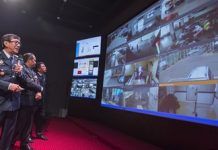Recently, in a landmark case, a court of appeal ruled that the South Wales police unlawfully used facial recognition technology and violated human rights. Although the ruling did not prevent the use of the technology in the UK, the Surveillance Camera Commissioner, Tony Porter, acknowledged that the case demonstrated that there can be inherent bias in facial recognition algorithms. He also confirmed that he will be amending his police guidance with respect to the correct use of the technology, and discussing with manufacturers what more can be done to eliminate the bias.
South Wales Police was one of only two police forces using the automatic facial recognition (AFR) technology in the UK, the other being the Metropolitan Police in London. The Surveillance Camera Commissioner regulates the operation of overt surveillance camera systems such as CCTV and anything connected to those systems such as automatic facial recognition algorithms. After the court of appeal ruling, Tony Porter, considered the findings of the case and made a statement which included the following comments.
“I note the issues in the judgment regarding bias that can be inherent in facial recognition algorithms. Use of this technology will not and should not get out of the gate if the police cannot demonstrate its use is fair and non-discriminatory. I will consider how I can amend my guidance to ensure police forces are aware of the potential bias in systems and also consider what more can be done with manufacturers of the technology to eliminate it.
As far as the legal deficiencies identified by the court are concerned I am sure that others will share my frustration with the Home Office. The police worked hard to apply themselves in adhering to The Code, a statute based document which for more than five years I have fruitlessly and repeatedly been calling upon the Home Office to update. The court opined that these deficiencies could be addressed through updating The Code and through national police guidance being issued.
My considered view is that the Home Office and the Secretary of State have been asleep on watch and should reflect upon the comments of the court and now act in the public interest. I urge ministers and officials to listen to the independent regulatory voices which they have appointed to consider and advise on these matters, not ignore them. I hope they step away from their self-generated plan to dilute both my role and that of the Biometric Commissioner into a single commission and I hope that they review and update The Code and commission an independent review of the legal framework which governs overt state surveillance. Hope, but not hopeful.
I very much welcome the findings of the court in these circumstances. I do not believe the judgment is fatal to the use of this technology, indeed, I believe adoption of new and advancing technologies is an important element of keeping citizens safe. It does however set clear parameters as to use, regulation and legal oversight. Maybe the regulators at the sharp end of this subject matter really do understand things a little more than those advising ministers sometimes purport to.”








